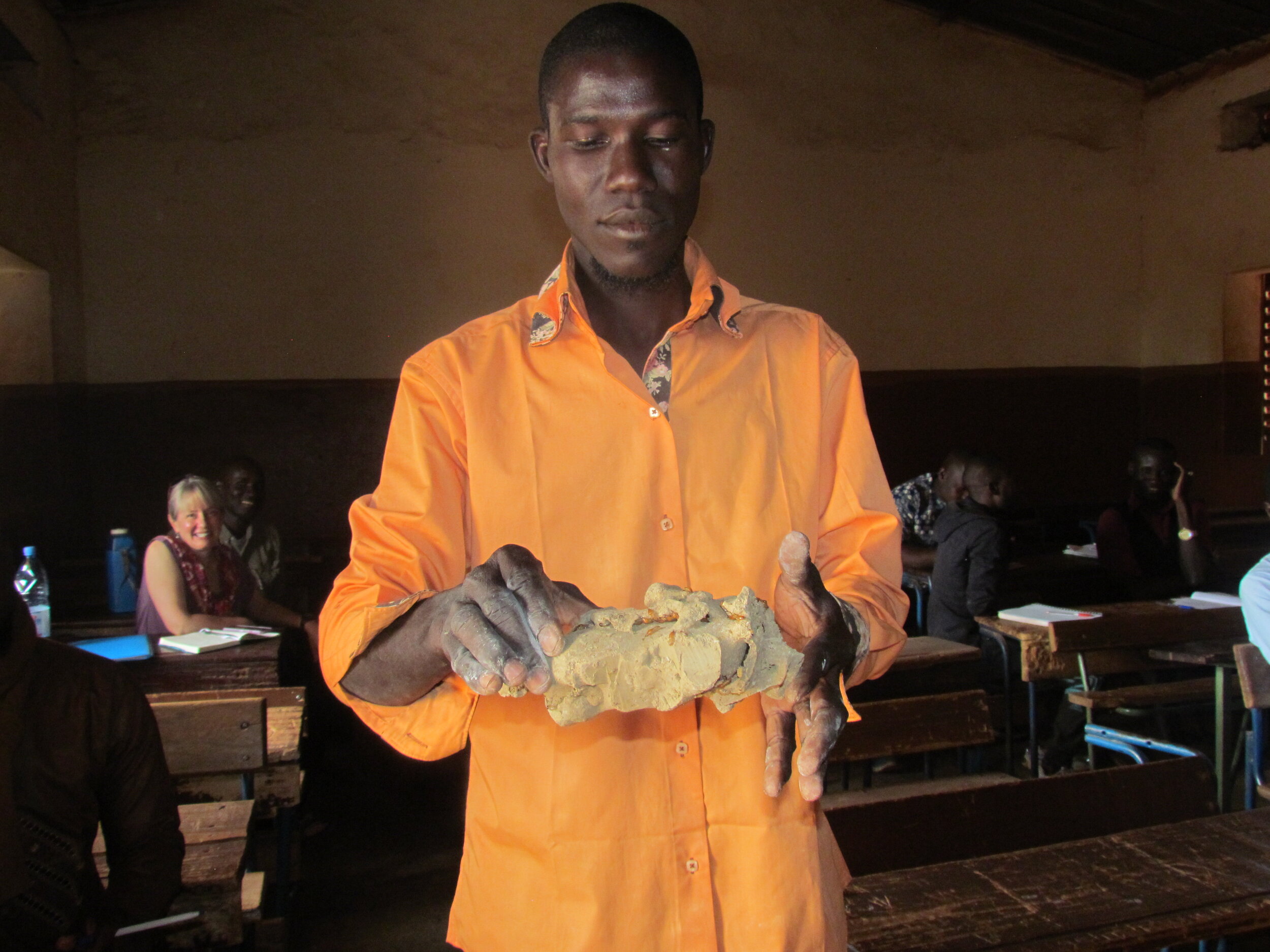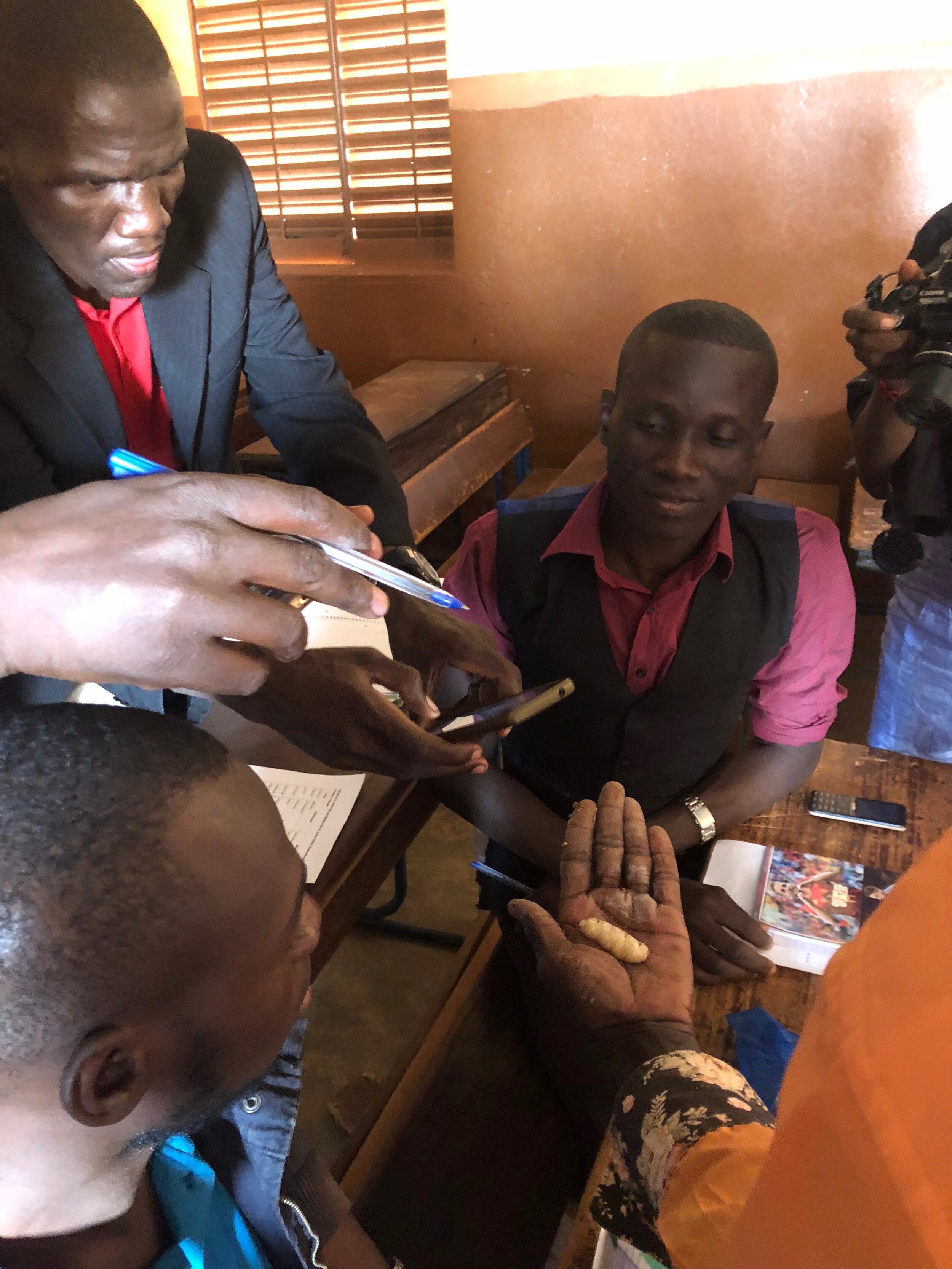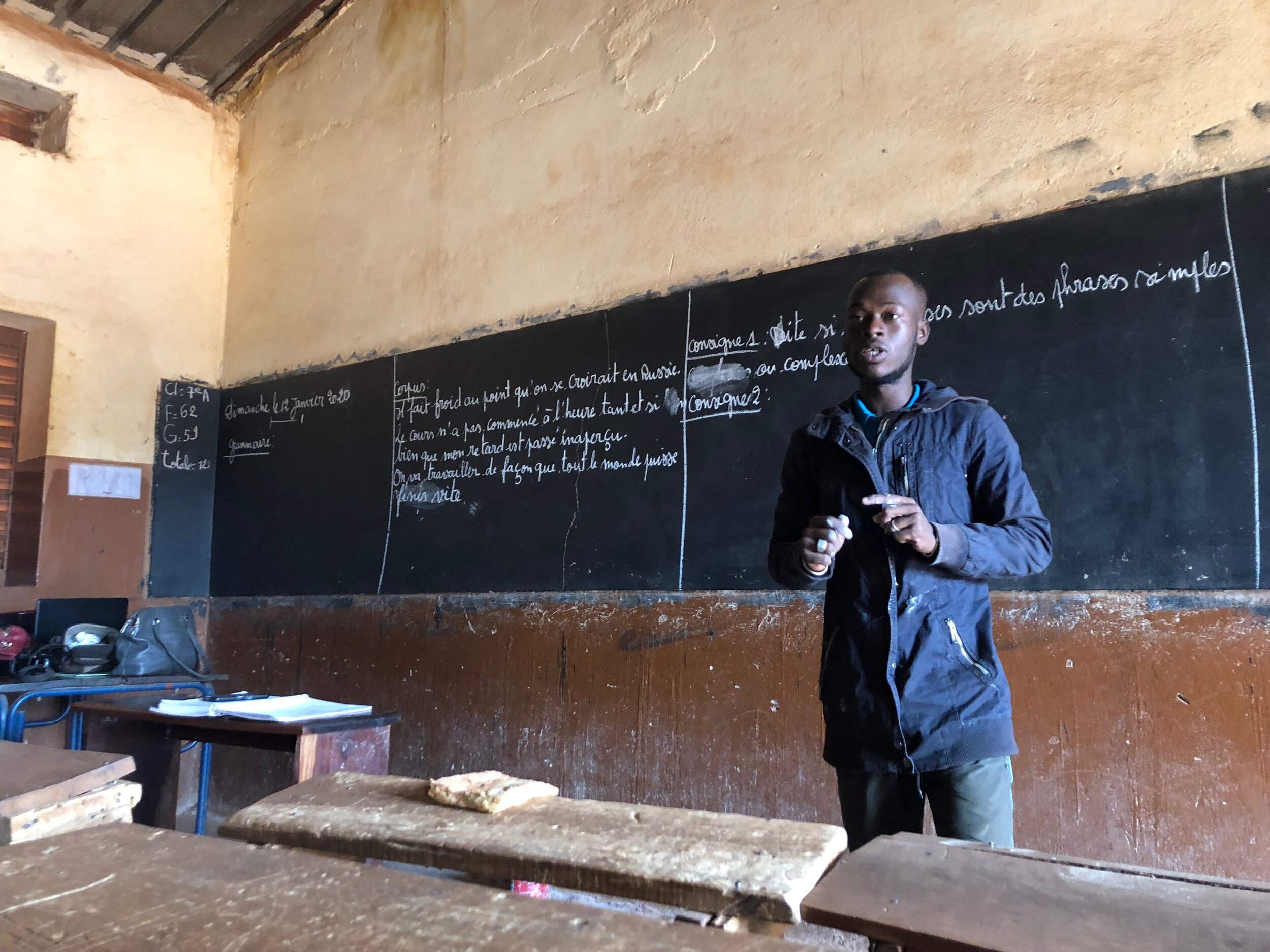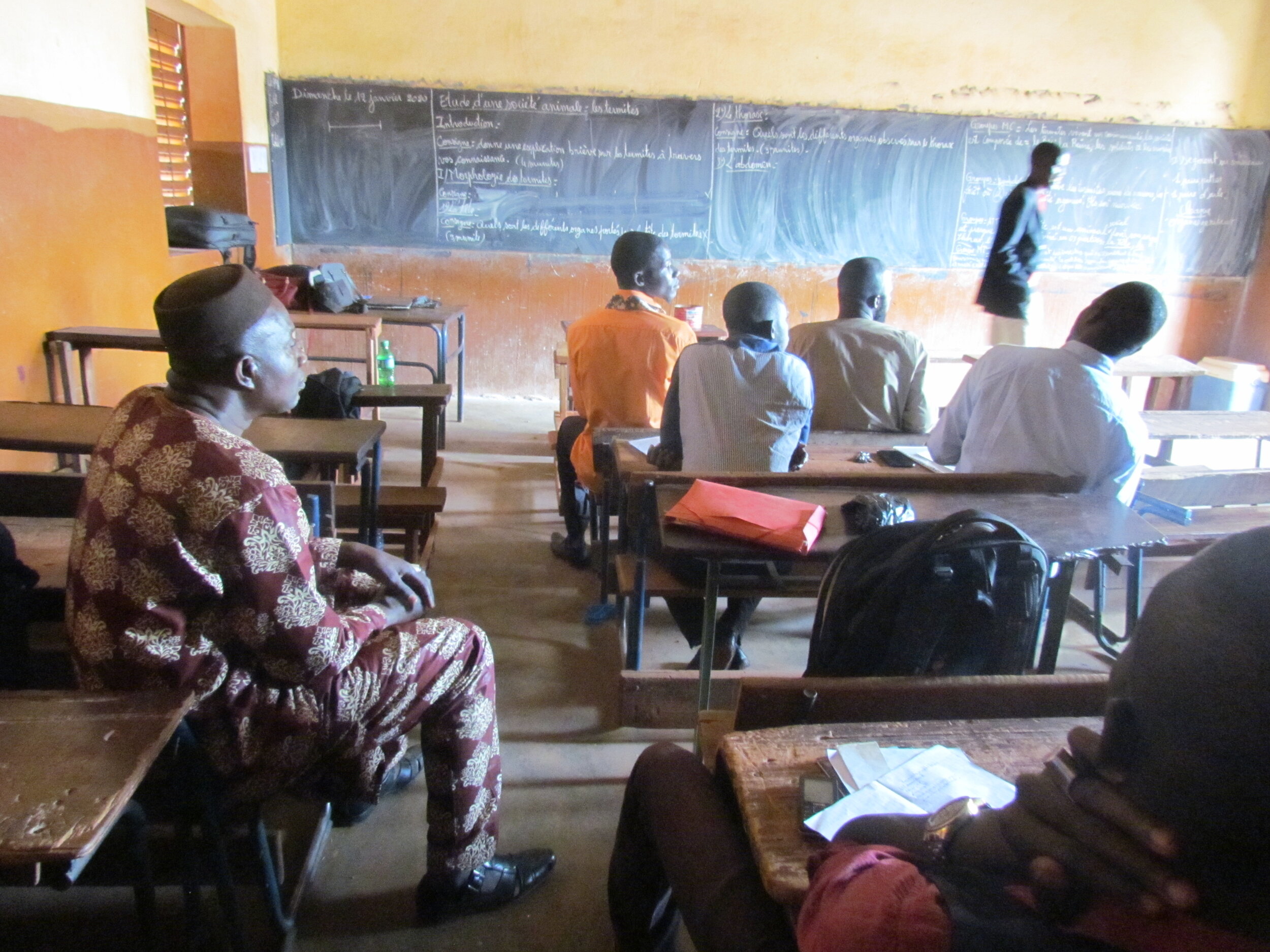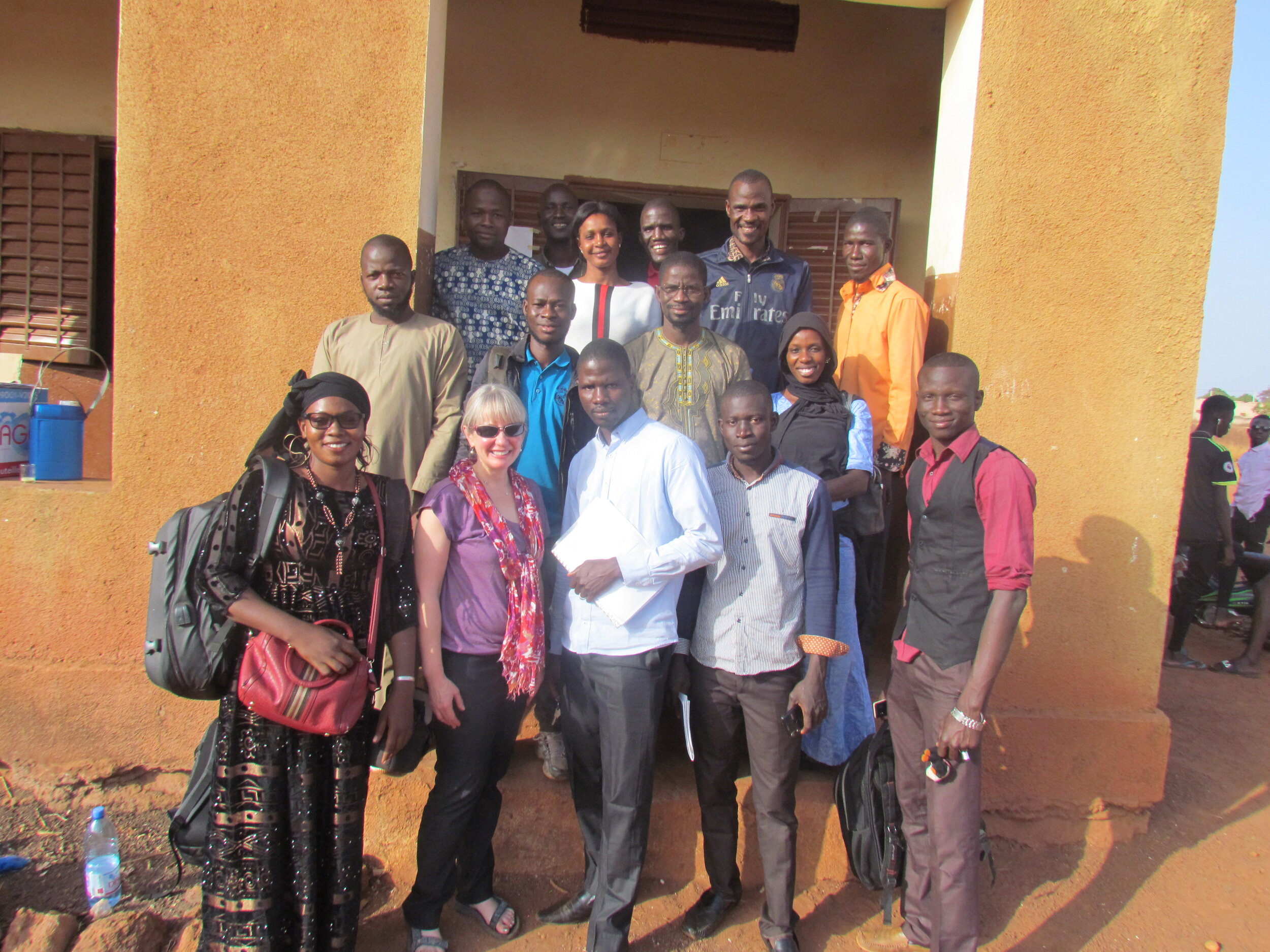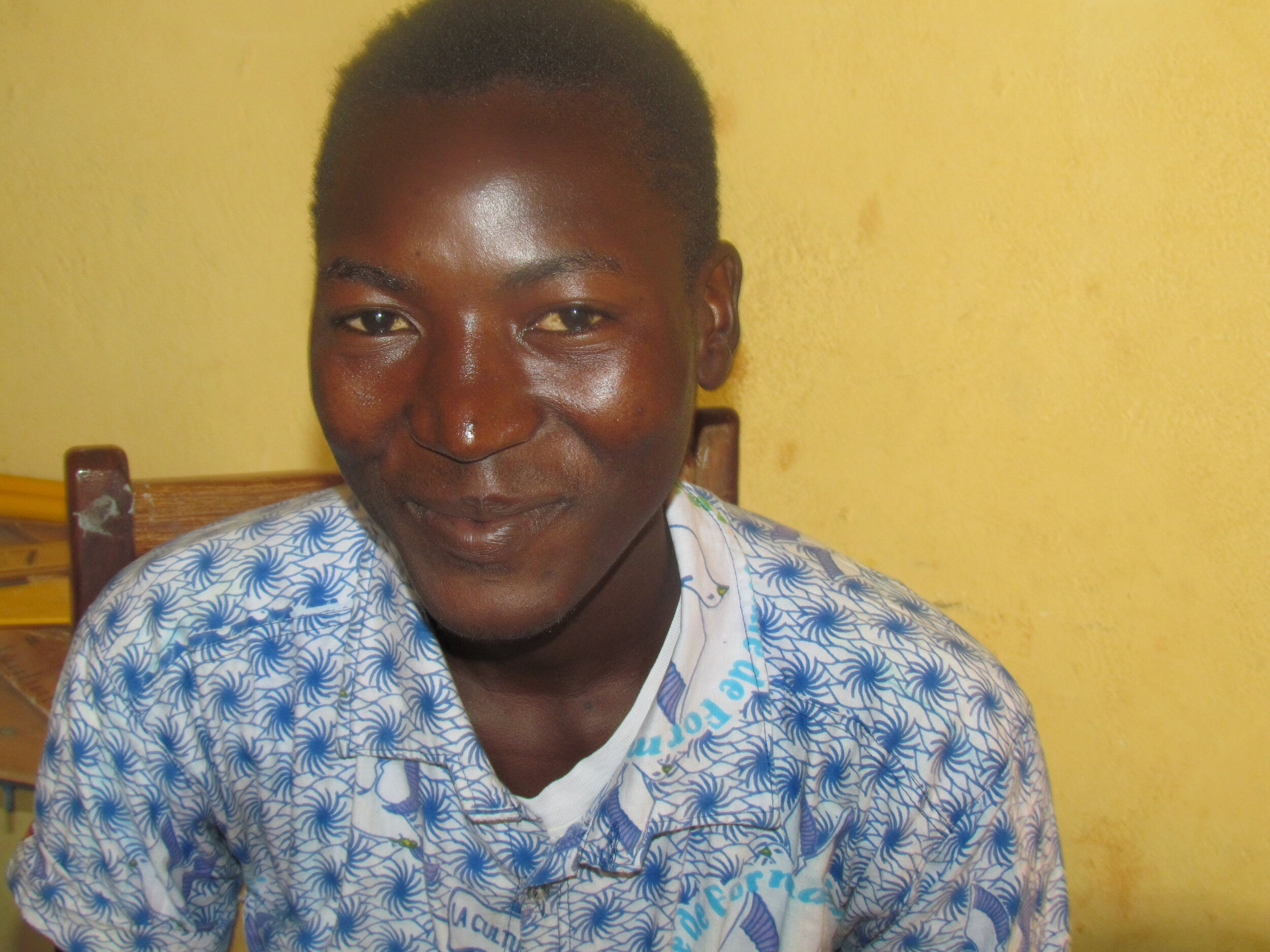Day 3, January 13: Monday in Mali brought our first kind of normal day of the trip. What’s a normal day? Visiting with as many of our schools as we can, listening as much as possible, laughing with our students, and maybe a little dancing.
Travelogue...Days 1 & 2: Teachers & Termite Bites
The US- and Mali-based staff spent two weeks in January together in the field in Mali. Our incredibly limited access to the internet did not allow us to post our blog updates from the field, so we are sharing them now from the zippy wi-fi of the U.S. Join us on the blog for the next few weeks for a daily update on the trip!
By Merritt Frey, Executive Director
Day 1-2, January 11-12: The first full day of our expedition was a memorable one, including a lively peer meeting with 10 of our teachers and a termite bit for me.
I arrived in Bamako early on Saturday evening, having met up with Mali Rising supporter and volunteer extraordinaire Tim Gibson at the Paris airport. The Mali staff welcomed us at the airport in sunny Bamako, but then left us to recover under our hotel’s beautiful, big trees. After more than 24 hours of travel, we were happy to head to our rooms, only to find our rooms basically abutted the all-night dance party next door – hurrah for ear plugs!
Sunday morning all that was forgotten as we headed out – me to Mali Rising’s teacher peer meeting several hours’ drive away and Tim to the wedding of a friend’s daughter in Bamako. I was excited to finally see a teacher peer meeting in action. We launched the peer support idea two years ago, with the help of our generous teacher sponsors. The idea was to find ways all year long for our teachers to help each other implement what they learn at our annual training.
At each peer meeting 8 to 10 teachers from 4 or 5 Mali Rising schools gather together. Two teachers agree to present a lesson to their peers as if their fellow teachers were the students. After presenting, the teachers gather feedback – good and bad – from their peers. It takes a strong teacher to volunteer to present for criticism!
At this meeting, we hosted 10 teachers – 5 French teachers and 5 science teachers. They came from our schools in Kafara, Fadioubougou, Beneko, Tamala, and Sequessona. Both of our volunteer presenters were from Fadioubougou’s EO Learn for Life Academy.
It was so heartening to watch our teachers in action. Despite their limited tools and support (many teachers are facing classes of 100 students with few textbooks and other materials), they were professional and passionate.
The French teacher, Amadou Traore presented first. As someone who was never great with grammar, I can say with certainty that Mr. Traore did an amazing job of making complex sentences and participles understandable! He had us working in groups, diagramming sentences, and making up our own sentences to prove we understood the concepts. Feedback from his peers was supportive, but also quite critical. He took the tough feedback with great grace.
I have to admit though that for me the science teacher – Souleymane Kone – stole the day. His lesson was about social insect communities, and specifically termites. He got our attention immediately because he brought part of a termite nest with him! Mr. Kone had us exploring their anatomy, experimenting to see if they bite (well, yes, if you poke them), and more. Although Mr. Kone received some tough feedback about the organization of his lesson, everyone agreed that his passion for the subject was infectious and that students would be hooked to the lesson.
The meeting ended with time for the teachers to share other issues or challenges they face and to discuss possible solutions. Although there are many challenges at rural schools in Mali, the teachers made it clear they would love more chances to learn together at peer meetings and additional teacher training. We also added the teachers to a WhatsApp group we are using to keep the teachers in contact with each other over the school year. Thank you to all the Mali Rising supporters who made this peer gathering possible!
Learn more about our Teacher Project.
Travel To Mali With Us...
Okay, I wish we could take you all with us but that isn’t practical. So the next best thing? Travel along with us virtually! As this blog post is published, I am winging my way to Mali to meet up with our great Mali staff for 2 weeks of school visits, celebrations, and learning…come along with us without leaving home!
Seydou Sees A Bright Future Thanks to You
by Alou Doumbia, Field Director
A very rewarding part of my job is to coordinate the scholarships granted to some of our most outstanding graduates — Inspiration Scholarships. These scholarships allow students to continue to high school or to a vocational school. I spoke with one of our new Inspiration Scholars, Seydou. Thanks to our generous supporters, Seydou is one of dozens of graduates now in professional school getting ready for big things. Here is what he had to say:
Seydou was born November 28th, 1998 in the village of Tièma 1 km away from Sebela. He attended the Tim Gibson School in Sebela where he where he graduated his DEF exam (the national graduation exam).
When he was selected as a Mali Rising scholar, he intended to continue his studies in pastoral farming, but his choice was not accepted by the school authorities. However, that did not disturb him at all. After he passed the DEF exam, he was referred to a vocational school for a 2 year accounting assistant program.
Seydou said, “Teachers and supervisors trust me in our school, they are all happy to hear that I am planning to continue my studies. I am courageous and hope to be successful in my life because my parents can’t support me. That is why I take courage and study hard. I want my brothers to study hard because education is very valuable, whether you are from a rich or poor family, if you are not well educated, you will be regretful one day.”
“I like accounting the most among our subjects, but the exercises are difficult,” continued Seydou. “Talking about meals, I really like the "fakoï" which is a rice dish with a black sauce, it is a the favorite one of the "Sonrhaï" ethnic group living northern Mali. I don’t like to hurt someone who didn’t hurt me. I’m going to make fun now, I’m a Dogon [an ethnic group], and my joking cousins are the Sonrhaï ethnic group who like nothing but fakoi.”
Learn more about the Inspiration Scholars Project.
Meet Marie, Our New Volunteer Operations Coordinator!
Now Accepting Entries: Make the Case for Caring Essay Contest
Need a Last Minute Gift? Push Our Book Drive Over the Top!
Despite your best laid plans, you might be just about starting to panic. I know I am! Do you need just one or two more gifts to finish off your shopping, but fear heading to the stores now just might kill you? I hear you. And I have a solution. How about gifting one or more textbooks for our students in Mali? A textbook costs just $10, and you can donate them in any number. $30 gift? Three books. $50 gift? Five books. You get the idea.
How Mali Celebrates!
By Sam Eliason, Mali Rising Intern
Cultures around the world celebrate holidays with traditions and ceremonies both familiar and diverse. As we enter the holiday season here in the United States, I wanted to find out the ways Malians celebrate their special days.
Along with many common holidays we celebrate in the states, Mali celebrates Islamic holidays such as the End of Ramadan, the Feast of the Sacrifice, and the Birth of Muhammed the Prophet .Approximately 85 to 95 percent of Malians are Muslim, so these holidays are celebrated with traditions across the country. At the conclusion of Ramadan, Malian families celebrate Abraham’s sacrifice by sacrificing a sheep and holding a small feast. Gifts, usually in the form of meats and prepared foods, are exchanged as a show of unity and people wear their best dress.
In January, Armed Forces Day is celebrated to honor those serving in armed forces. On September 22, Mali celebrates its Independence Day which is an occasion for celebrating independence from France in 1960. Parades and political speeches are held, much like our Independence Day celebrations.
Along with National Holidays, there are festivals held around Mali that draw the attention of visitors and leaders. One such festival is that of the Niger River. “This Segou February festival is filled with music, dance, puppet shows, workshops, craft vendors, and pirogue boat races along the Niger River. No fewer than 15 of the Segou's unique puppetry and dance styles are represented, which also attracts many of Mali’s famous musicians. Wood carvings, paintings, sculptures, and photographs from the country’s most talented artists are displayed in galleries around the region. Actors, musicians, and puppeteers accompany centuries-old legends that Segovian storytellers share beneath the balanzan trees” (iExplore).
Seeing the similarities and differences of cultures around the world is a show of individualism, tradition, and uniqueness that is quite fascinating. We wish you the happiest of holidays from Mali Rising as you enjoy your traditions, whatever they are, this holiday season!
Works Cited
“Mali Holidays and Festivals.” Adventure Tourism - Experiential Travel Guides, IExplore, www.iexplore.com/articles/travel-guides/africa/mali/festivals-and-events.
“Mali.” Countries and Their Cultures, Countries and Their Cultures, www.everyculture.com/Ja-Ma/Mali.html.
Our Girls Imagine Their Futures...With & Without School
During our twice-monthly Girls Groups meetings, we work with our girls to develop skills they need to thrive in school and in life. A common theme is the power of education to help girls achieve their dreams. In November, I lead the girls in an reflection exercise, focused on making girls aware of the disadvantages of not going to school, and the benefits of their education. Explore how one young woman — Halimatou — imagined her possible futures.
Homes & Schools for Nomadic Families
Mali is a country of old civilizations and old cultures like many other countries! It is a country that is larger than many African countries with many different communities that speak more than 40 native languages. In northern Mali, nomadic herding is a typical way of life that gives rise to both mobile homes and mobile schools.


